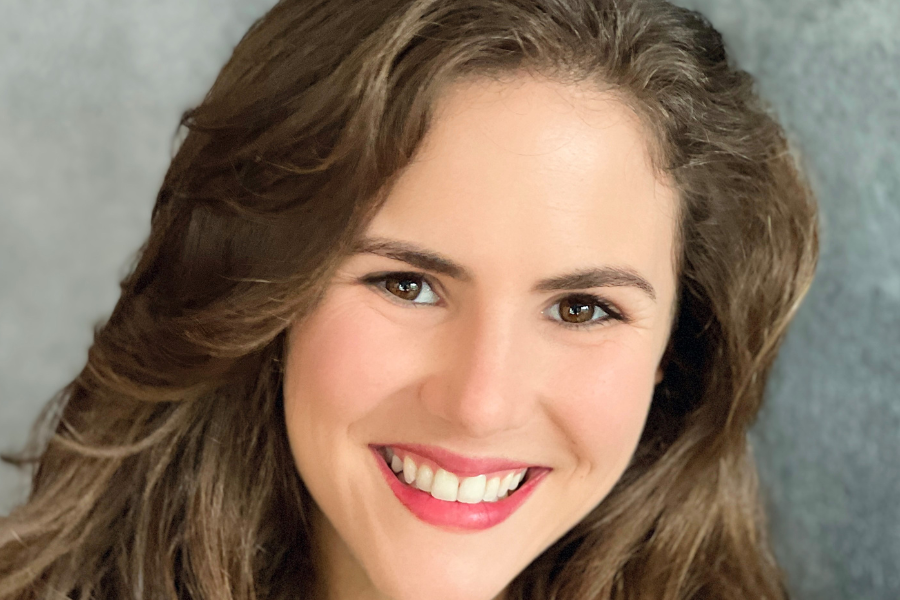Erika Hernandez Hudson

"Never stop questioning everything."
College: Communication and Information
Degree Program: Communication Science and Disorders
Degree: Master's
Why FSU?
I chose to pursue my master's in Communication Science and Disorders in the School of Communication Science and Disorders after graduating from FSU with my master's in Spanish Linguistics in 2020. My last degree shaped my interests as a linguist and led me to my current department. I focused on acoustic phonetics and sociolinguistics and was funded by the Winthrop King Institute to travel to Spain to carry out research for my thesis. Although I loved the research I was doing, I wanted to apply my knowledge of languages and how they work in a more clinical setting. I decided to continue my education in FSU's Speech-Language Pathology Bridge Program and was then accepted to the Distance Learning Program in Communication Science and Disorders. I graduate in Summer 2024 and could not be happier with the guidance and support I have received throughout my education from the outstanding faculty at the University.
Motivation to pursue a graduate degree
After studying at an international high school with an immersion experience in French and Italian, teaching English as a second language (ESL) in Spain, teaching Spanish to undergraduates in the Department of Modern Languages and Linguistics, and completing my master's in Spanish Linguistics, I knew that I wanted to continue working with languages, but I was not sure if the research route was one I wanted to continue. An incredible professor I had in my undergraduate and graduate experience at FSU, Dr. Carolina Gonzalez, guided me through my next transition. She told me about phoneticians who had gone back to school to become speech-language pathologists. Although starting all over again in another field was a daunting task, I was intrigued and very thankful for her guidance.
Importance and/or impact of research and work
In 2020, I defended my master's thesis, "The Effects of Bilingualism on Intonation in Galician and Spanish." I studied the intonation of yes/no questions produced by a population of bilingual speakers (Galician and Spanish) in northwestern Spain. Throughout this process, I collected acoustic data and spent a year analyzing their speech to determine if their intonation matched that of one language over another and compared it to which language/culture they identified with more. Now, as I finish my second master's to become a speech-language pathologist, I apply my background in phonetics and bilingualism to accurately treat bilingual patients in my speech therapy clinical rotations and SLP job.
Career aspirations
I am excited to pass the PRAXIS exam this year and become an SLP next year. I have thoroughly enjoyed my coursework and clinical rotations, which have spanned all age groups. I am very interested in working with multilingual school-aged children with speech-sound disorders but have also enjoyed providing therapy to post-stroke individuals with aphasia. I am excited to see how I can provide speech therapy to both populations in the future.
Advice for anyone considering graduate school
I would advise people to enter graduate school with a clear career goal after graduation. If it is research and instruction, then a PhD should be your goal. If it is not, look up other positions previous graduates with your degree currently hold. Future graduate students should pursue well-compensated positions in areas they plan on living in post-graduation. Do research on these positions decide if a graduate degree will help you attain your goal.
Accomplishments during graduate career
I am proud to have been awarded the Winthrop King Summer Research Grant in 2019 and have defended my research in 2020. I am honored to be learning from my professors and clinical supervisors in the Department of Communication Science and Disorders where I have completed clinical rotations in private practice, the school system, and a senior nursing facility. I am also proud to be working on my first publication and have presented my work at two conferences:
Hernández, E., González, C. & Muntendam, A. (2020). Language contact and the intonation of Yes/No-questions in Galician: The Effects of Age, Gender, and Language Dominance. International conference on Intonation, Language Contact and Social Factors, University of the Basque Country, Oct 23-24, 2020.
Hernández, E., González, C. & Muntendam, A. (2021). The intonation of Yes/No-questions in bilingual Spanish and Galician. 10th International Workshop on Spanish Sociolinguistics, Georgia Tech University.
